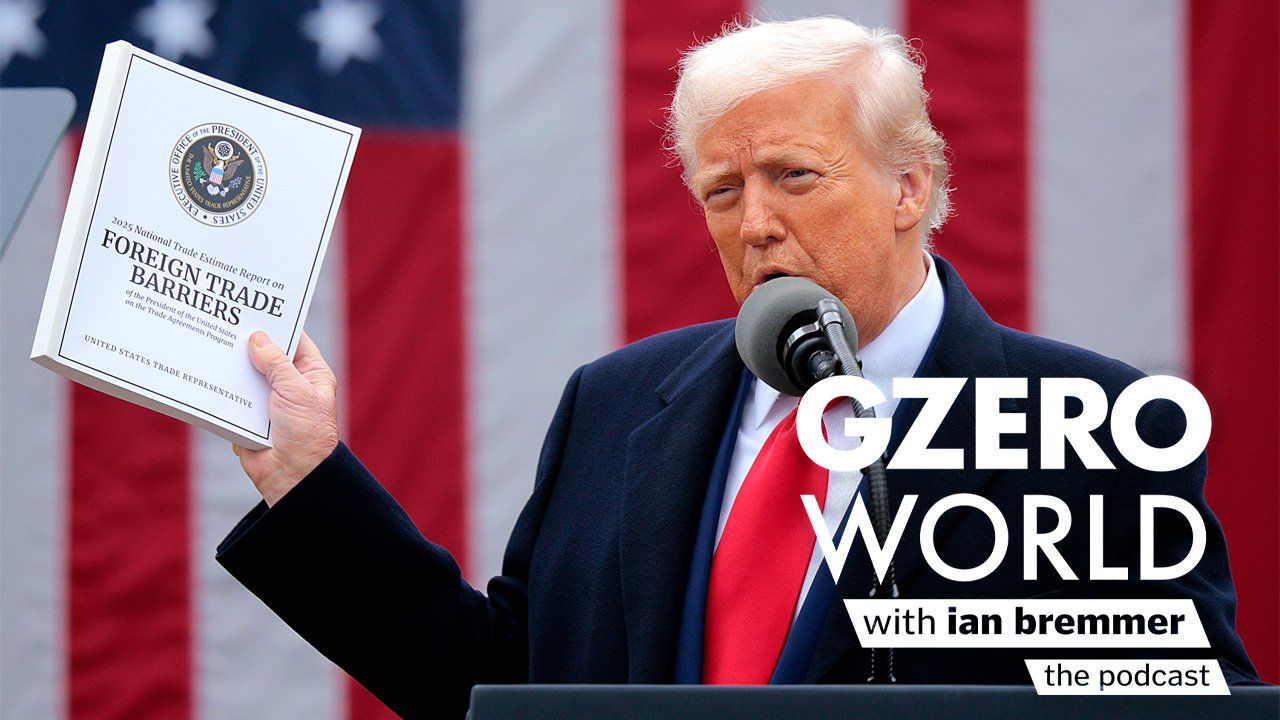August 02, 2025
President Trump’s policies swiftly rewriting the rules of global trade. As the United States imposes tariffs on allies and adversaries alike, do we risk losing our edge? On the GZERO World Podcast, CNN’s Fareed Zakaria joins Ian Bremmer to discuss what happens when globalization’s biggest champion becomes its biggest critic. For the past 80 years, the United States has been the beating heart of the free trade movement, the country that forced all the other countries in the world to open their markets. But now, Washington is tearing up the economic playbook—levying historic tariffs and recasting the world as a high-stakes, winner-take-all, zero-sum game.
Zakaria says we are living through an age of backlash to 30 years of globalization and that the next 10 years will be a period of “slowbalization,” where we'll see a much slower pace of growth and a much more political economy. Bremmer and Zakaria break down America’s retreat from global leadership, shifting power dynamics between the US and China, European pressure to become more self-sufficient, and whether the Trump administration’s economic gamble is worth the risk.
“The United States has gone from the leading advocate of free trade to being the most protectionist advanced industrial country in the world,” Zakaria warns, “We’ve always invited competition from the world’s best. If we move to something else, I think we lose that edge.”
Subscribe to the GZERO World Podcast on Apple Podcasts, Spotify, Stitcher, or your preferred podcast platform, to receive new episodes as soon as they're published
More For You
Hellenic coast guard performs SAR operation, following migrant's boat collision with coast guard off the Aegean island of Chios, near Mersinidi, Greece, February 4, 2026.
REUTERS/Konstantinos Anagnostou
15: The number of migrants who died after their boat accidentally collided with a Greek Coast Guard vessel in the Aegean Sea on Tuesday. Two dozen people were rescued.
Most Popular
Walmart is investing $350 billion in US manufacturing. Over two-thirds of the products Walmart buys are made, grown, or assembled in America, like healthy dried fruit from The Ugly Co. The sustainable fruit is sourced directly from fourth-generation farmers in Farmersville, California, and delivered to your neighborhood Walmart shelves. Discover how Walmart's investment is supporting communities and fueling jobs across the nation.
Workers repair a pipe at a compound of Darnytsia Thermal Power Plant which was heavily damaged by recent Russian missile and drone strikes, amid Russia's attack on Ukraine, in Kyiv, Ukraine February 4, 2026.
REUTERS/Valentyn Ogirenko
Democratic Alliance leader John Steenhuisen announced Wednesday that he will not run for a third term as leader of the liberal, pro-business party, after months of internal pressure over a host of controversies – including allegations, since cleared, that he used the party credit card for Uber Eats.
© 2025 GZERO Media. All Rights Reserved | A Eurasia Group media company.
